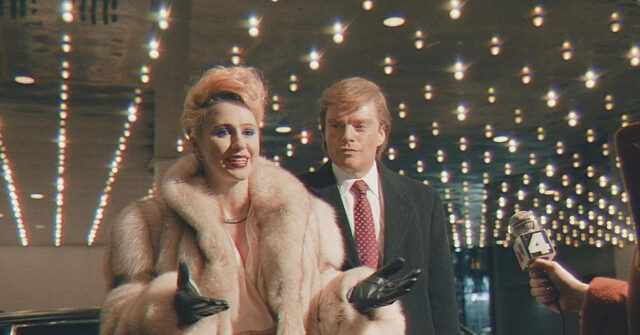Former President Donald Trump has robustly criticized the biopic “The Apprentice,” labeling it as a “fake,” “classless,” and a “pile of garbage.” His remarks came in light of the movie’s disappointing performance during its opening weekend in the U.S., where it earned just over $1.5 million despite receiving significant promotional backing from various news media outlets. Trump expressed his discontent through a Truth Social post, conveying that he believes the film was intentionally released to undermine his political influence ahead of the 2024 Presidential Election. He described the project as a “cheap, defamatory, and politically disgusting hatchet job” aimed at detracting from the momentum of his slogan, “MAKE AMERICA GREAT AGAIN.”
The film, directed by Ali Abbasi, dramatizes Trump’s early career, focusing specifically on his rise in the real estate world during the 1970s and 1980s and his contentious relationship with lawyer Roy Cohn. The casting choices have also sparked discussion; actor Sebastian Stan portrays a youthful Trump, while Jeremy Strong, known for his role in HBO’s “Succession,” embodies Cohn in a rather sinister fashion. Among the more troubling aspects of the film is a scene depicting a fictional account of Trump assaulting his then-wife, Ivana Trump, who has previously denied claims regarding any such incident. Trump publicly defended his ex-wife through his social media platform, asserting that she was a “kind and wonderful person” and emphasizing the positive nature of their relationship until her passing.
Further intensifying the feud, Trump singled out the film’s screenwriter, Gabriel Sherman, whom he disparagingly referred to as “human scum.” This personal attack reflects Trump’s broader strategy of combating what he perceives as media bias and portrayals that mischaracterize his life and legacy. The film’s portrayal of events, particularly highly controversial and potentially damaging scenes, has also been met with outrage from Trump and his legal team. Following the film’s premiere at the Cannes Film Festival, Trump’s lawyers reportedly sent a cease-and-desist letter to the filmmakers seeking to prevent its dissemination, alleging that the film grossly misrepresents his character and history.
Despite substantial media exposure leading up to its release, “The Apprentice” struggled to captivate audiences, hinting at a disconnect between the film’s objectives and public reception. The seeming lack of intrigue or support from viewers might be indicative of the polarized nature of Trump’s portrayal in pop culture. Many Americans have formed steadfast opinions about Trump—whether negative or positive—and enduring narratives may overshadow new representations, no matter the backing from major media entities.
Trump’s denouncement of “The Apprentice” serves both as a defense of his reputation and an attempt to galvanize his political base in the lead-up to the 2024 election. His criticism emphasizes a recurring theme in Trump’s narrative: he frequently positions himself as a victim of media deceit and political conspiracy, framing criticisms as personal attacks against not just himself but also his supporters and their values. As political tensions continue to escalate in the U.S., the controversy surrounding the film may further polarize public opinion and potentially become a focal point in an already contentious election cycle.
In the broader context, “The Apprentice” and Trump’s response illustrate the ongoing interplay between politics and media portrayal in the United States, particularly as the nation gears up for a pivotal election. Trump’s fervent reaction underscores the stakes involved for him, as any perceived attack on his character can be interpreted as an attack on his political identity. This situation brings into question the influence of cinematic narratives in shaping public perception, especially regarding deeply influential figures like Trump, whose legacy continues to inspire passionate debate and diverse opinions among the American populace.

